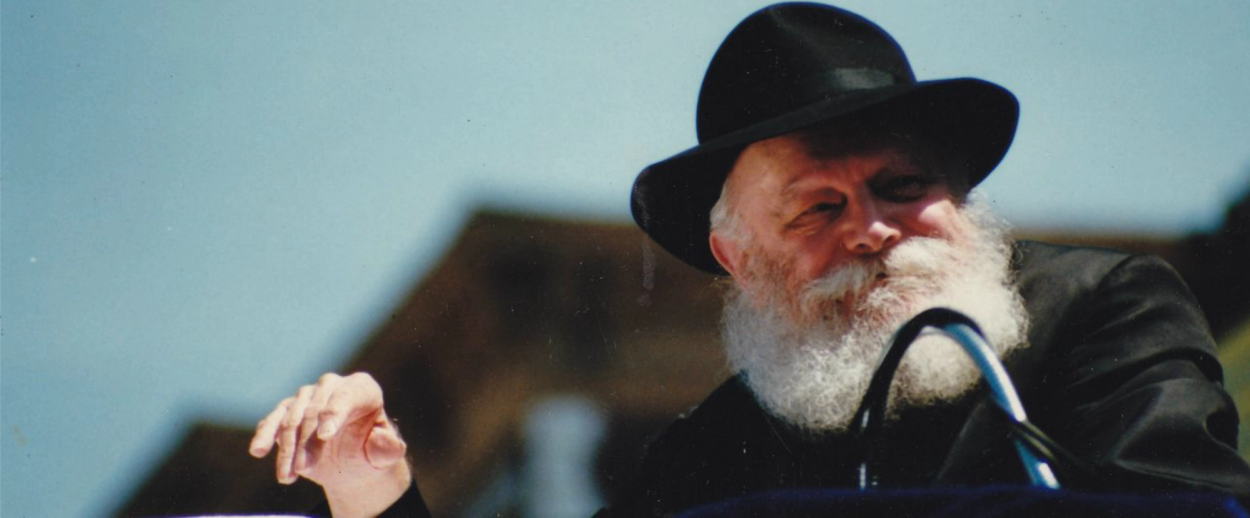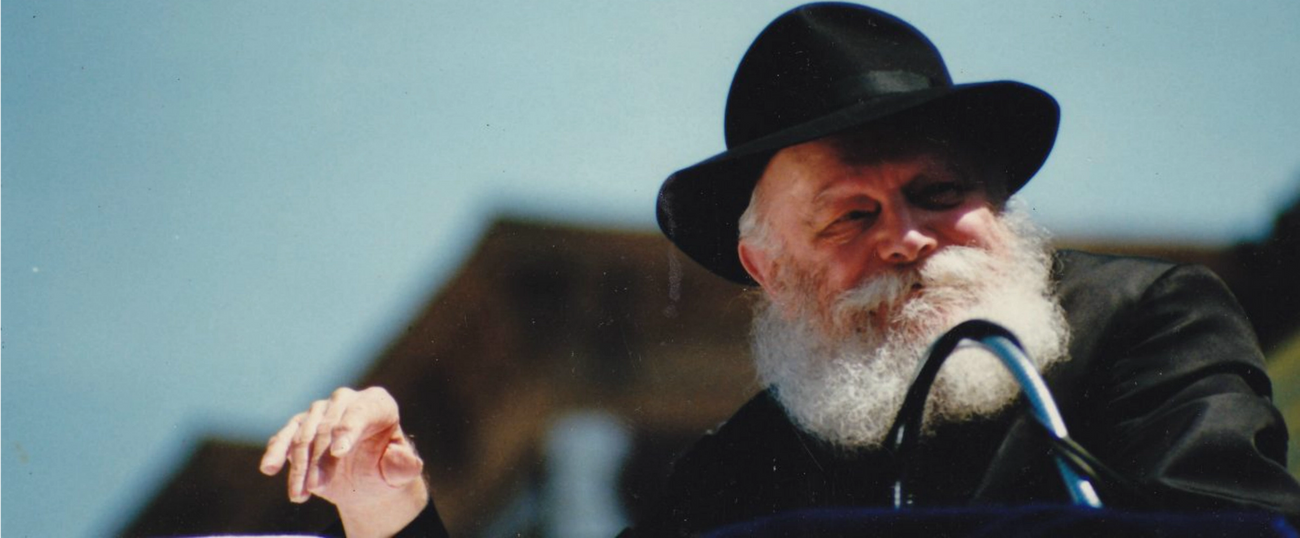Today’s the Little Known Jewish Holiday We All Need Right Now
The Tenth of Shevat is a Hasidic commemoration that reminds us that only we have the responsibility and the ability to fix what’s broken in our lives




You wouldn’t know it by watching, say, CNN, but today is an important day in Jewish history, one that delivers a timely and much needed lesson about the true meaning of leadership.
On this day, the 10th of the Hebrew month of Shevat, in 1950, Rabbi Yosef Yitzhak Schneersohn, the sixth Lubavitcher rebbe, passed away. One year later to the day, his son in law, Rabbi Menachem Mendel Schneerson, accepted leadership of the Chabad-Lubavitch movement.
If you’ve watched too many state of the union addresses or primary stump speeches, you might expect the ascendant Rebbe, 49 at the time, to take his place in history by delivering a thundering speech and reassuring his Hasidim that he is up the task.
Instead, the Rebbe delivered something very different, a speech that focused not on any one individual but on the entirety of the Jewish community. This, as Ari Lamm stated recently in an eloquent Twitter thread, was the Rebbe’s unique genius: Seeing the entire Jewish people, not each Jewish individual, as the agents of religious meaning. Only together, the Rebbe believed, can we serve our purpose as what Lamm nicely calls “a transformative moral force in history,” which means that our leaders need to take a very different tack than merely advocating piety and study.
Just what that tack might be was evident from the beginning of the Rebbe’s speech. “You must realize how cherished you are,” he said, “and how much has been invested in you. You will then fulfill your part in the mission to draw God’s essence into his material world.” How? By emulating Abraham’s example, practicing self-sacrifice, and working hard to help others unlock their own potential to bring a little more godliness into our benighted and shattered world.
If you think this is all just a host of Hasidic inspirational chatter, consider the movement the Rebbe built. His shluchim, or emissaries, never wait until they’re given permission to act, or big budgets, or public recognition, or material comfort, or societal admiration and respect. Instead, they make their way to all the world’s corners, the welcoming and the remote alike, and get to work creating hospitable and accommodating Jewish spaces and helping Jews find new ways to connect to the ancient tradition.
If only because it’s the day after a very contentious presidential address to Congress, if only because we still haven’t a clue who carried the Iowa caucuses, if only because so many of us, left and right, develop attachments to charismatic leaders we hope will save us from the predicaments we so foolishly helped create, let’s take time this Tenth of Shevat to reflect on the true meaning of leadership.
A leader, even one as revered and respected as a Hasidic master, isn’t there to take on transformation all by himself. He or she is there to help us realize that it’s up to us to fix what’s broken and do what must be done. They demand not obedience but collaboration, because they understand that the project of making everything better is always a group project, never a solo act.
Even those of us who aren’t Hasidic should take that to heart. The democratic process is singularly important, and the next president of these united states can do a lot to repair or further tear our common fabric. But rooting for leaders and casting votes and watching cable news shows isn’t a license to tune out the rest of the time. As the Rebbe said that Tenth of Shevat all those years ago, a lot has been invested in us; it’s time for us now to give back.
How to do that is up to each one of us. Some of us may want to invite a few friends over for pizza and beers tonight. Others might want to start a book club and tackle some text that has long intrigued you. The exact prescription doesn’t matter; what matters is that assume personal responsibility for building a community that feels responsible for all of its members and for the world at large, the exact opposite of the logic hoisted upon us by apps and social media platforms that make us lazier, lonelier, and more angry. No politician, no matter how well intentioned or well pedigreed or well spoken, can build this community for us, but the best and brightest know that their job is to build it with us.
Liel Leibovitz is editor-at-large for Tablet Magazine and a host of its weekly culture podcast Unorthodox and daily Talmud podcast Take One. He is the editor of Zionism: The Tablet Guide.